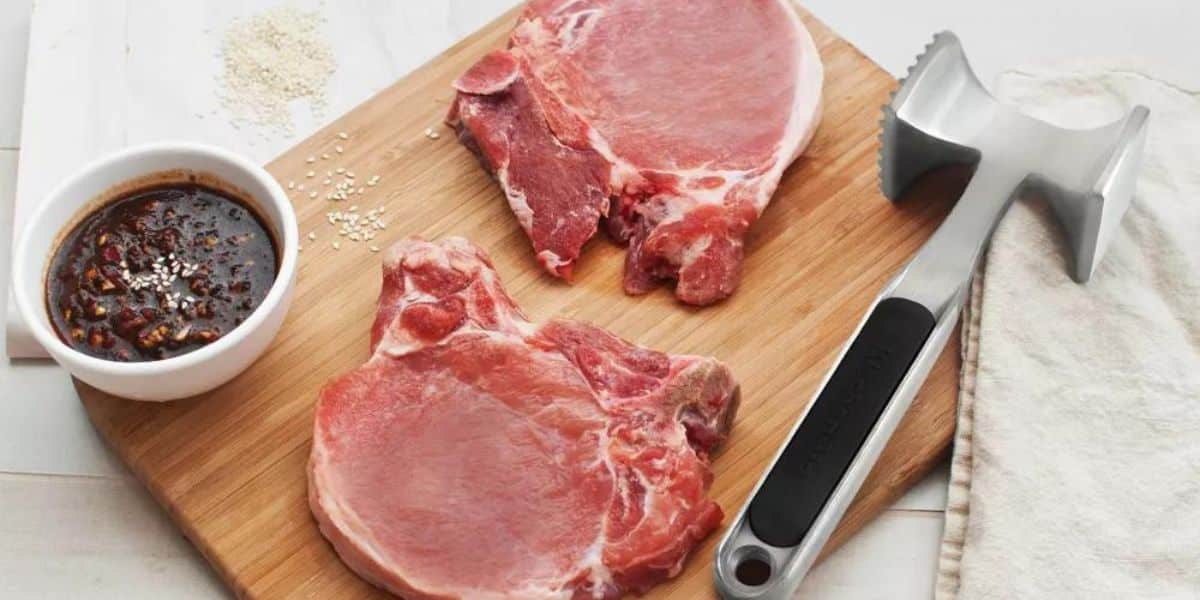What Is the Fastest Meat Tenderizer? Tips for Barbecue Lovers
Written By James Morgan
For barbecue enthusiasts, tender meat is a top priority. Whether you're grilling steak, chicken, or pork, knowing the answer to what is the fastest meat tenderizer? can make or break your BBQ game. In this comprehensive guide, well dive into the fastest ways to tenderize meat, ensuring that your next cookout leaves your guests raving.

Understanding Meat Tenderizing
Tenderizing meat involves breaking down the tough muscle fibers to make it more palatable. This can be done using mechanical, chemical, or enzymatic methods. To achieve optimal tenderness quickly, its essential to understand these methods and use the right one for the type of meat youre preparing.
Mechanical Tenderizing
Mechanical tenderizing involves physically breaking down the meat fibers. One of the quickest ways to do this is by using a meat mallet. By pounding the meat, you break down the muscle fibers, resulting in a more tender texture. Another method is using a meat tenderizer tool with blades or needles, which pierce the meat and create channels for marinades to penetrate.
Chemical Tenderizing
Chemical tenderizers use acids or enzymes to break down the meat fibers. Common chemical tenderizers include vinegar, citrus juices, and commercial meat tenderizing powders. These methods require some marinating time, but they work relatively fast compared to other methods.
Enzymatic Tenderizing
Enzymatic tenderizers, such as papain (from papayas) or bromelain (from pineapples), break down proteins in the meat. These enzymes are highly effective at tenderizing and can work in a short period. However, it's important to monitor the marinating time closely, as over-tenderizing can result in mushy meat.

Top Fastest Meat Tenderizers
Now that weve covered the different methods, lets look at the fastest meat tenderizers you can use to get your BBQ meat ready in no time.
Commercial Meat Tenderizing Powders
These powders are a popular choice for their convenience and effectiveness. They usually contain enzymes like papain or bromelain and can tenderize meat in as little as 30 minutes to an hour. Be sure to follow the instructions on the packaging for the best results.
Acidic Marinades
Using ingredients like vinegar, lemon juice, or buttermilk, acidic marinades can quickly break down muscle fibers. A marinade with these acidic components can tenderize meat in as short as 2 hours. For faster results, consider using lemon or lime juice, which are highly acidic.
Mechanical Tenderizers
Mechanical meat tenderizers, such as mallets or blade tenderizers, can deliver immediate results. After pounding or piercing the meat, it's ready for cooking right away. This method is ideal when youre short on time and need to tenderize meat quickly before grilling.

Additional Tips for Quick Tenderizing
While the methods above focus on quick tenderizing, here are some additional tips to ensure your meat turns out tender and flavorful:
Use a Meat Thermometer
A meat thermometer ensures that your meat is cooked to the perfect internal temperature, preventing overcooking or undercooking. Check out this guide on meat thermometers to make sure you're using the right tool.
Rest the Meat
Allowing meat to rest after cooking helps retain its juices, resulting in a more tender texture. Let your meat rest for at least 5-10 minutes before slicing.
Choose the Right Cut
Some cuts of meat are naturally more tender than others. Opt for cuts like ribeye, tenderloin, or sirloin for quicker and more effortless tenderizing.
Frequently Asked Questions
Q: How long should I marinate meat for the best results?
A: The marinating time depends on the type of meat and the tenderizing method. For acidic marinades, 2-4 hours is usually sufficient, while enzymatic tenderizers work in 30 minutes to an hour.
Q: Can I over-tenderize meat?
A: Yes, over-tenderizing can result in mushy meat. Its important to follow recommended marinating times and monitor the texture of the meat.
Q: Is a meat mallet or blade tenderizer better?
A: Both tools are effective, but they serve different purposes. A meat mallet is great for flattening and tenderizing meat, while a blade tenderizer creates channels for marinades to penetrate deeply.
For more information on how to use a meat tenderizer, check out this guide.
As an Amazon Associate, I earn from qualifying purchases.



